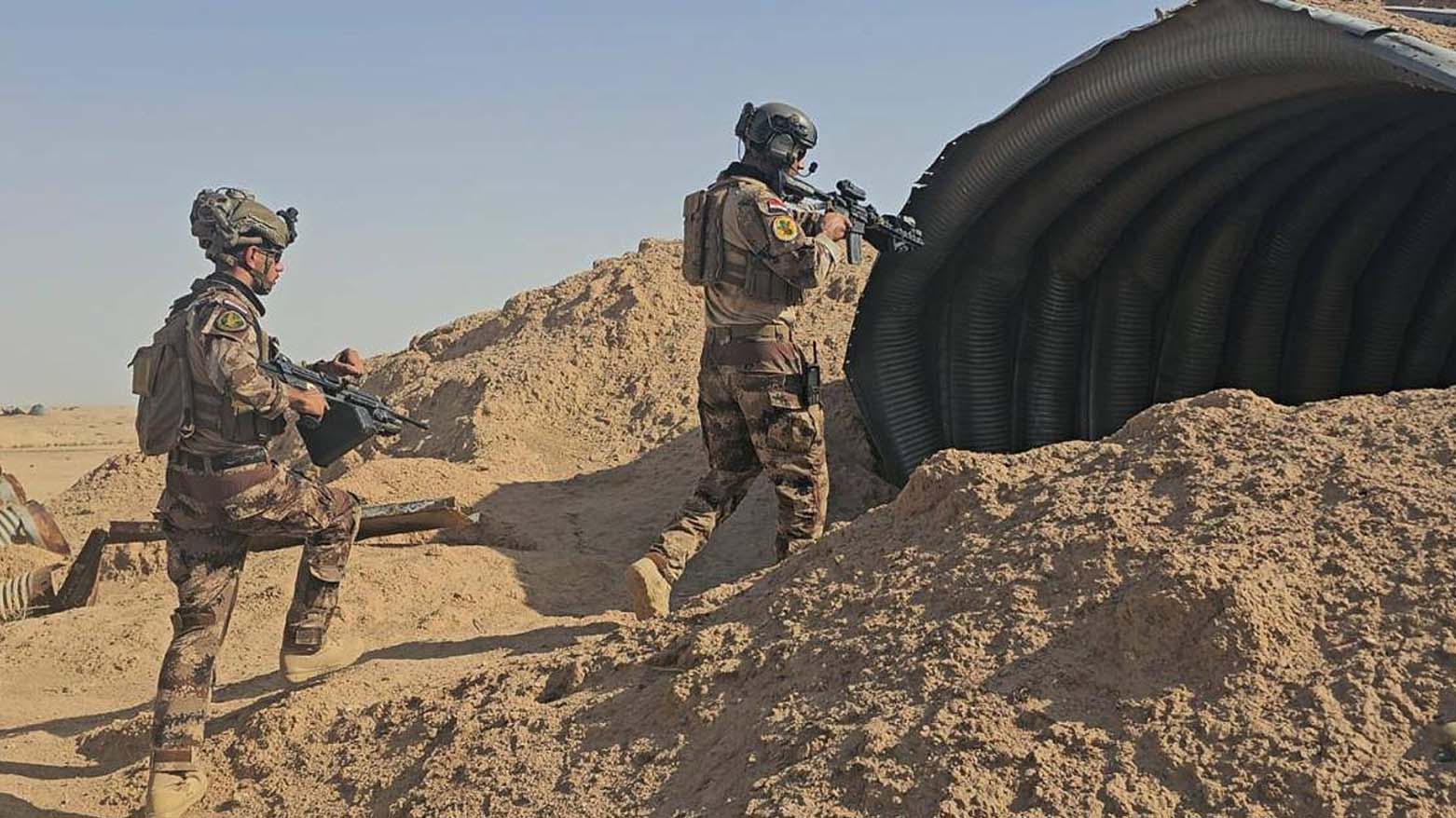Iraq Vows to Confront 'Hostile' Oil Field Attackers
Iraq's military launched a search for those behind "hostile" attacks on oil fields, following recent drone strikes on the Kurdistan Region that drew international condemnation.

By Kamaran Aziz
ERBIL (Kurdistan 24) — Vowing to confront all parties harming Iraq's supreme interests, the country's Joint Operations Command announced Friday it has launched a large-scale security operation to hunt down those responsible for recent "hostile" attacks on oil fields.
In a statement, the Joint Operations Command announced that on the orders of Prime Minister and Commander-in-Chief of the Iraqi Armed Forces Mohammed Shia al-Sudani, a search and inspection campaign had been launched.
The operation is taking place in the Khazar desert, covering regions of western Nineveh and Salah al-Din and targeting a large number of warehouses, valleys, and caves to find those involved in "undermining the security and stability of Iraq and creating turmoil," the statement read.
The command stated that its primary objective is to find the individuals and parties who have targeted "the oil fields" and several other Iraqi installations in recent days.
The statement emphasized that targeting the oil fields is a "hostile and dangerous act of aggression." It added that the security forces will confront all individuals and parties who harm Iraq's security, capabilities, and supreme interests, and will bring them to justice.
International Pressure Mounts After Attacks on Kurdistan Region
The announcement from the Joint Operations Command follows a series of drone attacks targeting the energy sector in the Kurdistan Region, which has drawn sharp condemnation from Kurdish officials and the international community.
On Friday, the British Embassy in Baghdad condemned the attacks, stating they "damage Iraq's economy, and undermine Iraq's stability" and urged the Iraqi government to "hold those responsible to account." This echoed strong statements from the United States, with the State Department calling the strikes a threat to "Iraq’s stability and economic future."
The pressure has also come from the U.S. Congress, with Representative Joe Wilson recently threatening that Iraq could be blocked from its oil revenues held in the U.S. Federal Reserve if Baghdad does not take "decisive action" against what he called "Iran-backed Iraqi militias."
At least seven drone attacks struck vital energy infrastructure in the Kurdistan Region between July 14 and July 16, hitting oil fields including Khurmala, Sarsang, Peshkhabour, and Tawke. The attacks affected international operators like U.S.-affiliated HKN Energy and Norwegian firm DNO.
Kurdistan Region Interior Minister Reber Ahmed has called the strikes "terrorist acts" and stated, "It is very clear where the drones are being directed from, as they always target the economic lifeline of the Kurdistan Region."
While no group has claimed responsibility, the attacks are widely attributed to "outlaw Iraqi militia groups." Despite an investigation being launched by the Prime Minister, no arrests have been reported.